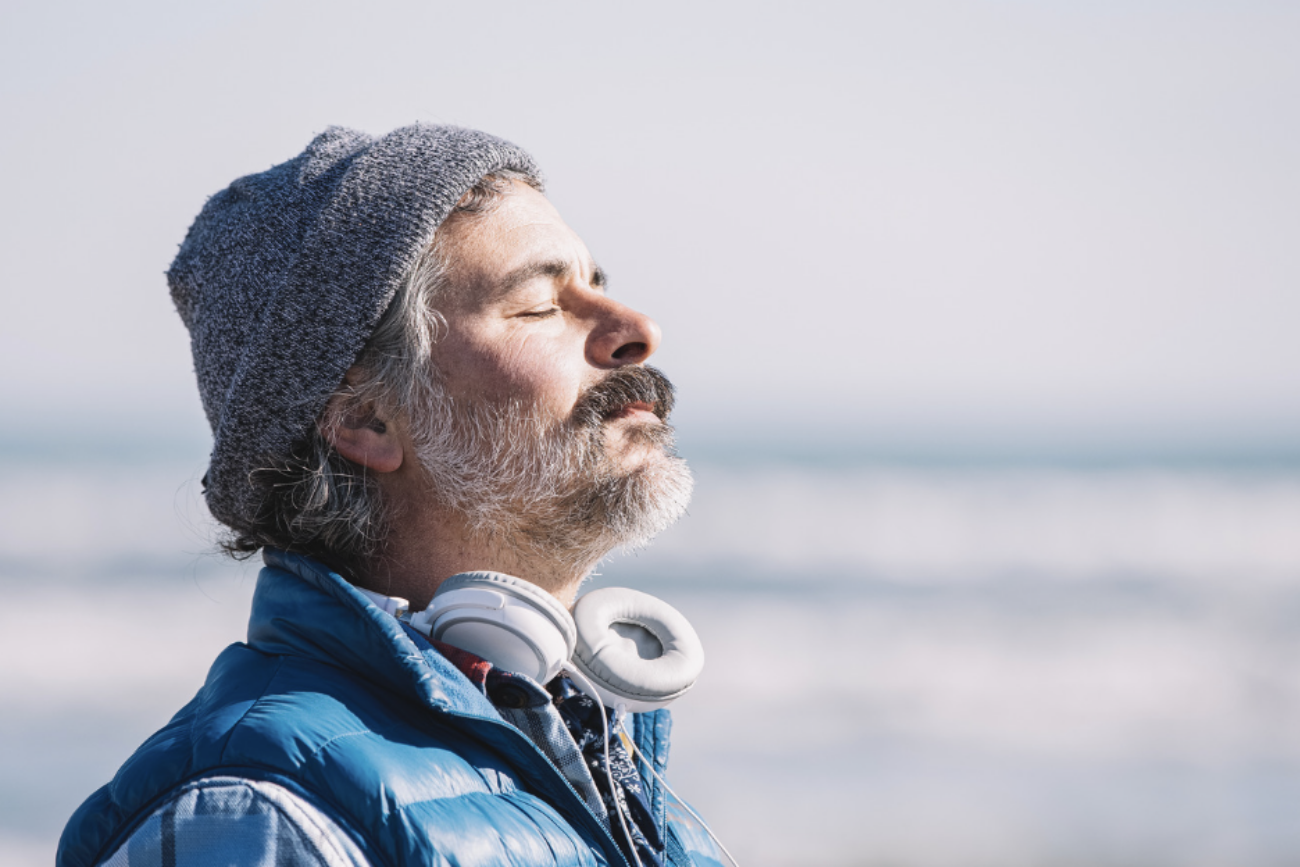In this month’s blog, we’re excited to welcome back Kevin Munhall, Founder of Habit Disruption and a functional breathing and stress resilience coach. Kevin shares insights on how to elevate our health and wellbeing journey through breathwork.
Breathing is often ignored.
And I understand why–you breathe all day long and CLEARLY you’re still alive, so it’s hard to believe that how you do it could really matter all that much.
Also, it’s not like your muscles where you can see the immediate feedback of getting stronger. You’ll never get to physically SEE all the adjustments being made to your blood, muscles and brains during a breathing exercise.
So naturally, it takes a backseat to other wellness goals.
But what if I told you how you breathe might be THE most important factor in determining your lifespan?
"Healthy, functional breathing & breathwork exercises can help you preserve and even possibly continue to develop your lung capacity as you age."
That’s what researchers have discovered.
You may have heard of the Framingham Study–it’s a 70-year longitudinal research program focused on heart disease, and what they discovered about longevity was pretty surprising.
When they gathered two decades of data from 5,200 subjects and crunched the numbers, they discovered that the greatest indicator of life span wasn’t genetics, diet, or the amount of daily exercise, as many had suspected.
It was lung capacity.
Large lungs equaled longer lives.
Researchers almost couldn’t believe it. And so there were follow-up studies to see if these results would be replicated.
They were.
They took another 2,273 women and men between the ages of 15 and 96, collected information on lifestyle factors and health status, including pulmonary function and when they followed up with them 29 years later, they also found that lung function was a significant predictor of longevity for the whole group.
The bottom 20 percent of men with the poorest lung function, when the study began, were more than twice as likely to have died during follow-up.
Women in the lowest group were more than 1 1/2 times more likely to have died.
But it wasn’t just those with ill health.
The risk of death was increased for participants with moderately impaired lung function, not merely those in the lowest quintile, which suggests that the increased risk isn’t confined to a small fraction of the population with severely impaired lung function.
And this has been found again and again.
AMAZINGLY, it doesn’t even matter if they are YOUR lungs as transplant patients with larger capacity also seem to survive longer, seemingly negating the importance of other lifestyle factors and variables.
So what can you do about it?
Your lung capacity is developed in your twenties and peaks sometime in your thirties. From there, it typically declines as we age.
But it doesn’t have to.
Healthy, functional breathing & breathwork exercises can help you preserve and even possibly continue to develop your lung capacity as you age.
And longevity is only the tip of the iceberg. The way you breathe all day long impacts your mood, energy levels, mental focus, energy levels, immune function, sleep, and more.
So I ask you:
- How frequently do you notice your breathing?
- Do you know how fast, slow, deep, shallow, efficient, and inefficient your breathing is?
- Have you considered that if breathing is so strongly correlated to lifespan it might also be crucial to your health and wellbeing throughout your life?
It MAY be a missing piece of your health & wellbeing journey worth exploring.
Inhale. We've got this. Exhale.
Understanding healthcare; with us, it’s personal.


